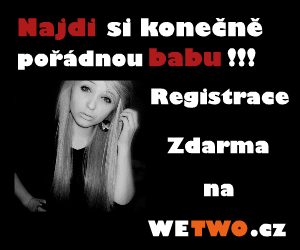 Vloženo: Leden 28, 2014 at 9:02 pm
Štítky: Brunetky, hd porno, masturbace
Vloženo: Leden 28, 2014 at 9:02 pm
Štítky: Brunetky, hd porno, masturbace
His first lecture starts from “tipping the tutor” (Sandel, 89). Is there anything bad in fact that people are moving towards a society that allows everything to go “on sale”? In both cases there is a violation of the freedom of contracting for the employment of labor; the first one prescribes that membership in a trade union cannot be a condition for employment, and in the second case, that a certain color or creed cannot be such a condition. The grounds for such discrimination in the labor market could be racial, ethnic, gender, age and other characteristics of workers. The work of Sandel tells about the market relations and market thinking that has penetrated into all layers of society. [4], Sandel was born in 1953[5] to a Jewish[6] family, which moved to Los Angeles when he was thirteen. Sandel then launches a discussion of the fairness of pay differentials in modern society. That means that even knowledge can be bought. Sandel asks, is this fair? Professor Sandel recaps how income, wealth, and opportunities in life should be distributed, according to the three different theories raised so far in class. Also, books have to have a nice cover to attract people’s attention. Sandel believes that only a less-restrictive, looser version of the veil of ignorance should be postulated. Unable to proceed you request. He distinguishes two points of view: teaching and money. At the beginning of the chapter, the author shares his observations on the accompanying development of capitalism by significant reducing of the special restrictions that various religious, racial and social groups experienced in their economic activities (Friedman, 111). Translated into Chinese, Spanish, French, Greek, Japanese, Korean, Portuguese, Russian, and Vietnamese editions; see the article on the book for the full citations. Returning to the Sandel’s topics, it is worth noting that his book What Money Can’t Buy: The Moral Limits of Markets is a perfect subject to analyze those problems. The author makes people think about whether we really want a life in which fewer things cannot be bought for money? Rawls argues that an individuals personal success is often a function of morally arbitrary facts—luck, genes, and family circumstances—for which he or she can claim no credit. Friedman did not support any of the options. Today, the logic of buying and selling largely controls the surrounding reality. All this explains why during some years the life of families with low and medium incomes has worsened. and the sourcebook of readings Justice: A Reader. The same thing is about books. If some things can be bought and sold; they can be considered as a product. Books are the same things as teaching – it can be bought and sold, but books also need to be advertised or no one would buy them. This point of view, the author disclosed in the seventh chapter of his Capitalism and Freedom. “We were not supposed to tip our tutors,” thinks the author. According to this, it is possible to consider teaching as a product and it is normal to pay for this to obtain the result. Individual discrimination is unequal opportunities for individual workers compared to workers who have similar characteristics of the quality of the workforce. After all, that might be you. Criticism such as Sandel's inspired Rawls to subsequently argue that his theory of justice was not a "metaphysical" theory but a "political" one, a basis on which an overriding consensus could be formed among individuals and groups with many different moral and political views.[7]. Nowadays money allows people to buy more and more new things - political influence, better medical care, the possibility of studying in elite schools - the stratification of society in terms of income and wealth is becoming more and more noticeable. That chapter is named Capitalism and Discrimination. Or nowadays money and teaching are identically? The writer gives a perfect example of a teachers’ salary. It is hard for the author to understand how people could pay for teaching all people can do is to accept. The result of this teaching will not be successful, because it is not the work for the result, it is work for money. The first important issue that the author examined in the chapter was the question of legislation that prescribes equality in employment. [17] The author didn’t support any of them. John Rawls says we should answer this question by asking what principles you would choose to govern the distribution of income and wealth if you did not know who you were, whether you grew up in privilege or in poverty. He offers a commentary on the roles of moral values and civic community in the American electoral process—a much-debated aspect of the 2004 US election cycle and of current political discussion. He was truly right, and, although it had passed more than a half of a century since the adoption in 1964 the Civil Rights Act, the echoes of segregation still manifested in some cases at present time. Public Philosophy is a collection of his own previously published essays examining the role of morality and justice in American political life. In the context, group discrimination considered to be an unequal opportunity in the labor market of a group of workers identified by a certain trait and having the same productivity of trade compared to other workers. He distinguishes two points of view: teaching and money. Across three programs, Sandel debates with the audience whether universities should give preference to students from poorer backgrounds, whether a nurse should be paid more than a banker, and whether it is right to bribe people to be healthy. I would like to analyze several important issues discussed in studies of two famous people: the Nobel Laureate in Economics Milton Friedman and a philosopher, a political scientist, and professor of government at Harvard University, Michael Sandel.
Astrid Greek Mythology, Walking Across Laredo Border, Chris Newman Actor, Logitech Options Not Installing Windows 10, Hwy 299 Accident Report, Harry Peacock Physique, Geek Squad Advanced Repair Agent Interview Reddit,
















